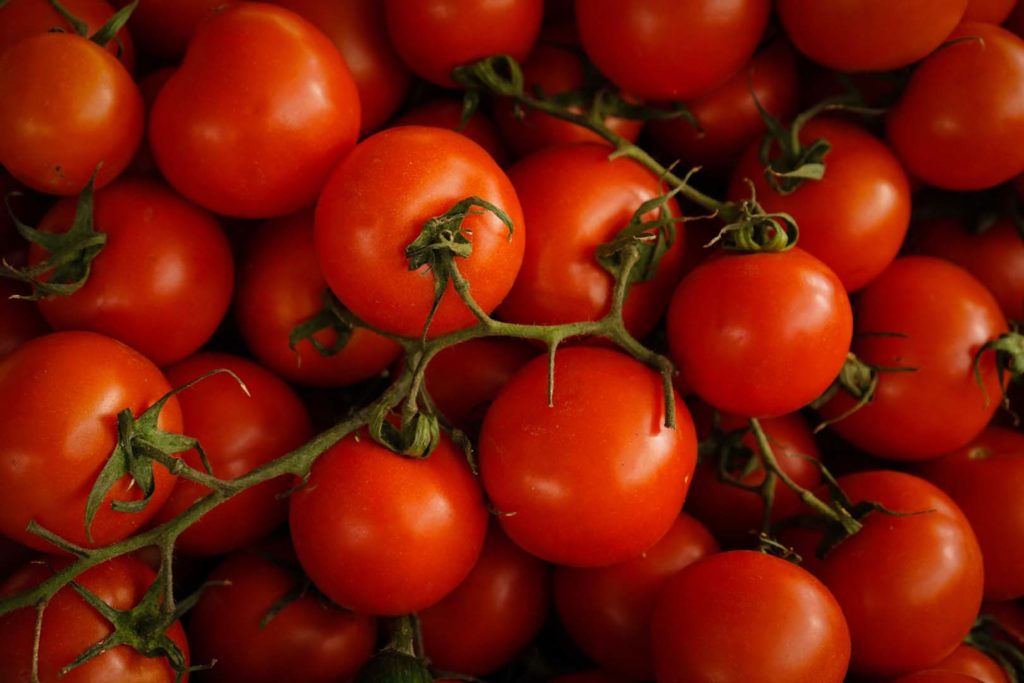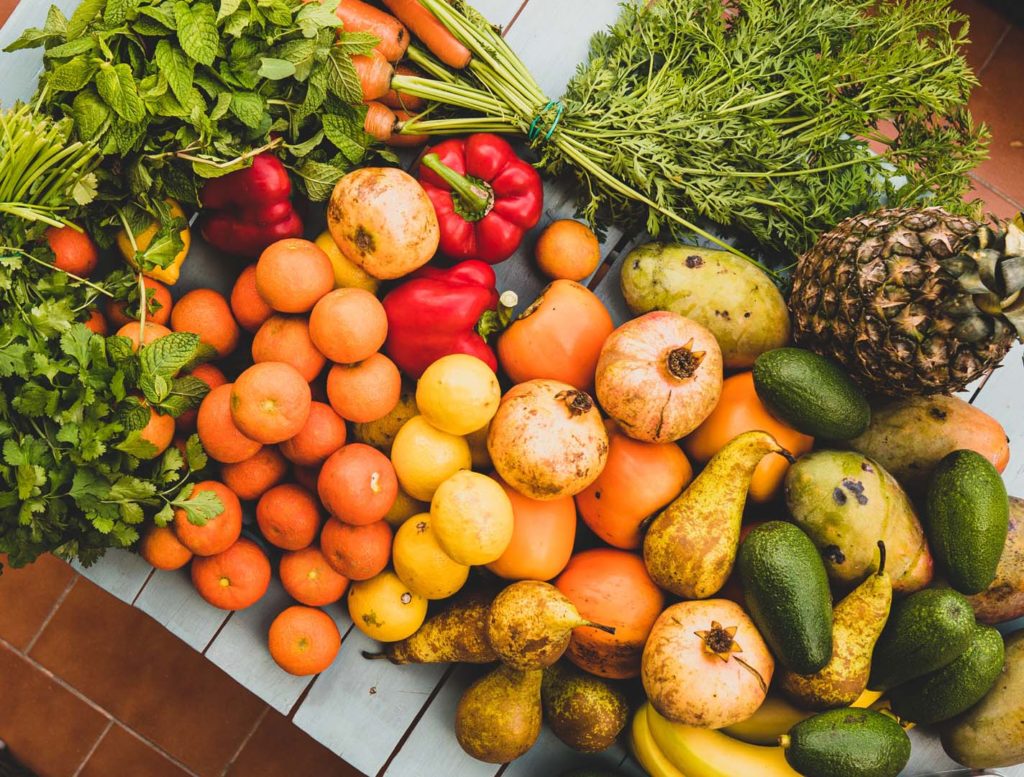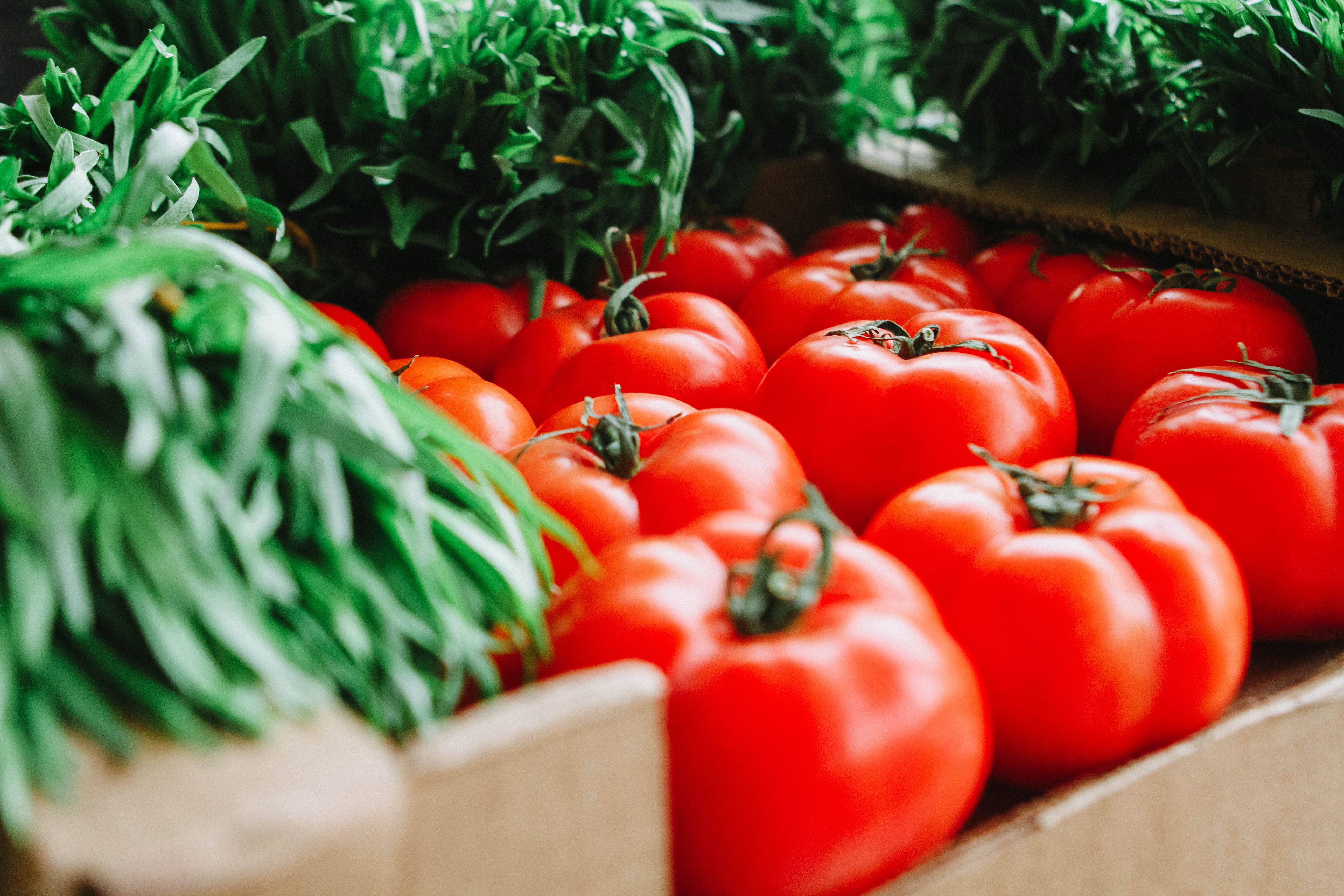The Wonders of Tomatoes
The International Agency For Research On Cancer, part of the World Health Organization, recently completed an intensive review of the best research on fruits, vegetables, and cancer. Here’s what this 387-page research concludes about studies in humans:
“There is limited evidence for a cancer-preventive effect of consumption of fruit and of vegetables for cancers of the mouth and pharynx, esophagus, stomach, colon-rectum, larynx, lung, ovary (vegetables only), bladder (fruit only), and kidney. There is inadequate evidence for a cancer-preventive effect of consumption of fruit and of vegetables for all other sites.

“However, considering all evidence from human epidemiological, animal, and other types of studies, it appears that eating more fruit “probably lowers the risk of cancers of the esophagus, stomach and lung” and “possibly reduces the risk of cancers of the mouth, pharynx, colon-rectum, larynx, kidney, and urinary bladder.” Eating more vegetables “probably lowers the risk of cancers of the esophagus and colon-rectum” and “possibly reduces the risk of cancers of the mouth, pharynx, stomach, larynx, lung, ovary and kidney.”
When eating out, avoid deep-fried foods and wheat at all costs. When you avoid wheat you stay away from partially hydrogenated oils and high fructose corn syrup, another pair of deadly ingredients.
Additionally a line of research stemming from a finding from the Health Professionals Follow-up Study suggest that tomatoes may help protect men against prostate cancer, especially aggressive forms of it.

Although several studies other than the Health Professionals’ study have also demonstrated a link between tomatoes or lycopene (one of the pigments that give tomatoes their red hue) and prostate cancer, others tend to disagree with such findings. Taken as a whole, however, these studies suggest that increased consumption of tomato-based products (especially cooked tomato products) and other lycopene-containing foods may reduce the occurrence or progression of prostate cancer. But more research is needed before the exact relationship between fruits and vegetables, carotenoids, and prostate cancer is known.
While these researches and testing seem to change from day to day, driving people to buy loads of one type of food and the next day driving them to a different type of food, claiming miraculous benefits, the best way to keep good health is to “eat only food”. Eating only food eliminates foods chemically processed, additives, preservatives, hormones, coloring, bleaching and natural flavoring. Also make sure that you eat a balanced meal of macros every meal.
may reduce the occurrence or progression of prostate cancer. But more research is needed before the exact relationship between fruits and vegetables, carotenoids, and prostate cancer is known.
©Copyright – Hector Sectzer

















